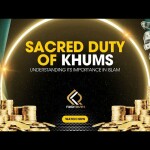Explore the intellectual and spiritual arguments that challenge atheism, presenting compelling evidence for the existence of God and the necessity of faith.
Atheism, the belief in the absence of a Creator, often rests on the premise of scientific materialism, rejecting anything beyond the observable universe. However, a closer examination reveals profound gaps in atheistic reasoning that fail to address the origins of existence, the fine-tuning of the universe, and the moral and spiritual dimensions of human life. The universe's incredible precision—seen in the constants of physics and the delicate balance required for life—points to a purposeful design rather than random chance. Can the complexity of DNA, the laws of mathematics, or the intricacy of natural systems truly be explained as accidental phenomena?
Furthermore, atheism struggles to provide a foundation for morality. Without belief in a higher power, moral values become subjective, varying from person to person, leaving no universal standard for justice or ethics. Religion, particularly Islam, offers a cohesive worldview that addresses these existential dilemmas, grounding morality in divine wisdom and providing purpose and direction for human life. The Quran, revealed over 1,400 years ago, presents knowledge and insights about creation and human nature that align with scientific discoveries, affirming its divine origin.
Ultimately, atheism lacks the answers to life's most profound questions, leaving a void that only belief in God can fill. By reflecting on the harmony of the cosmos, the depth of human consciousness, and the historical evidence of divine revelation, one finds overwhelming evidence of a Creator. Islam invites all to ponder these truths, engage in sincere inquiry, and recognize the undeniable existence of the One God.









